-
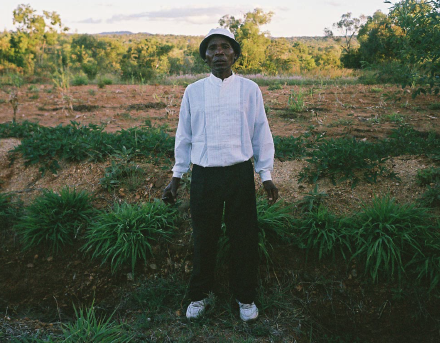
Origin
We are the guardians of the traditional seeds, the knowledge of our ancestors, valuing old agricultural techniques to create new paths for a more sustainable Planet.
There was a time when we had our own seeds, shared them, we planted a diversity of crops, creating balanced and healthy ecosystems, nurtured the soil, worked our land with respect, taking care of the other beings, the Nature, and even blessed our lands, celebrating, with passion and joy, the gifts it brought us every season. We farmed with Nature, not against it.
In this moment of climate crisis, when Southern and Eastern Africa Region are increasingly under the oppression of powerful actors, people do as they are told, lowering their heads before the corporations, being forced to accept a way of doing things that is leading us to a dead end.
-
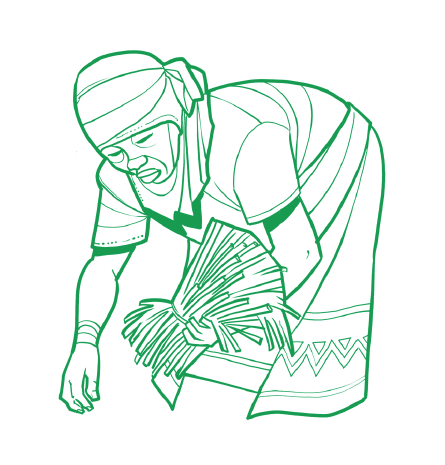
Origin
Throughout African history, women have played a special role in the daily fight to protect Mother Earth, our seeds and our territories, against the looting, the devastation, the death and oppression caused by entrepreneurial and colonial capitalism. As guardians of the seed, women are committed with Life since the origin. Nature gave us the seed, to feed our families and tend to our health and wellbeing. By placing ourselves at the same level as other beings and of Nature as a whole, we recognize the rights of all Life - We honor Mother Earth.
-
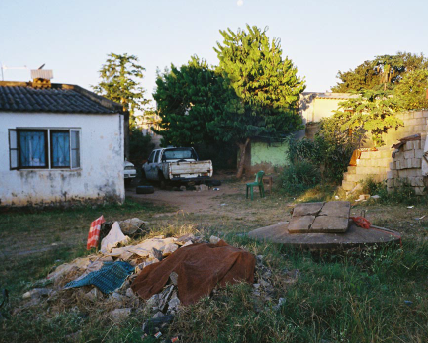
Origin
Embed in extractivist logic, the industrial food system is an attempt to dominate life on Earth for the enrichment and domination of a small elite. Those that control it ignore the floods, the droughts, decimation of biodiversity, the lifeless soils, the billions of hungry people, and the ample signals of the breakdown of the natural systems that sustain us. Those who control and profit from this crooked system, work hard to hide the damage it causes and force those most vulnerable to bear its burdens.
The modern food system and regime destroys Life in the soil, the forests, grasslands, oceans, rivers, and lakes. It drives and accelerates climate change, and subjugates peoples to a life of servitude. It is a model of death, oppression and violence.
-
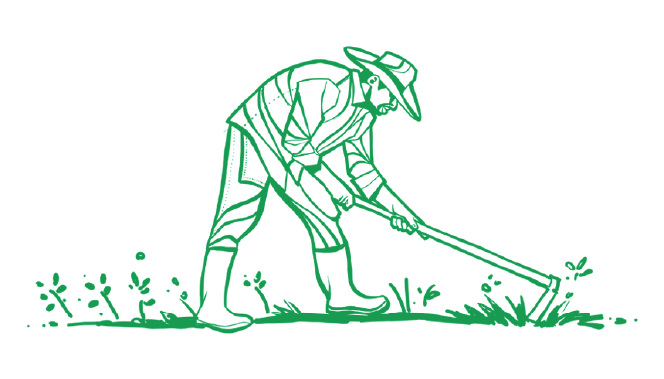
Climate change
Our historical pattern of development puts us in a situation where human life may soon not be viable on Earth. On our current global path of development, we are likely to exceed a 1.5 degree temperature increase limit before 2025. According to science, we simply don’t have more time to pollute, we must demand rich countries to stop evading their historical responsibilities and drastically cut pollution at its source now. Climate change alters rain patterns, making water resources scarcer and more distant, and food that much harder to grow. Often women and children bear most of the burden of this.
-
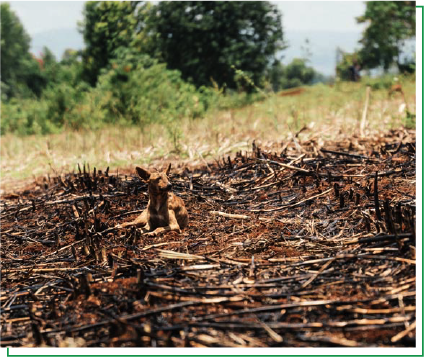
Climate change
“Climate change came,
people had to run to wetter areas,
so that is how these areas got damaged,
because people had to run to where soils
are good, and where soils are wet. It is happening and that is
a big problem.”Wali Christopher
ESAFF Uganda – Uganda
-
Women and climate change
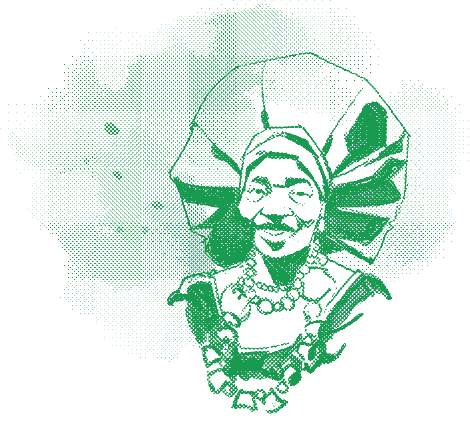
Considering the detrimental effects of the industrial food system in exacerbating climate change, the position of rural women and girls are made further vulnerable due to the compounding patriarchy that dictates the roles they are expected to fulfill or those in which they should rather not take part. Being responsible for the bulk of household responsibilities such as providing water for household use, preparing meals to guarantee the wellbeing of the family, including children and elderly, women’s socially constructed gender roles are highly dependent on the conditions that the environment provides.
Neo-liberal extractivism and patriarchy walk hand-in-hand as they intensify oppression and discrimination, and increase situations in which violence is perpetrated against women and girls in rural areas, as well as creating more insecurity and instability in women’s working conditions, in the midst of a climate of violence that undermines their dignity.
-
Women and climate change
“It is women
that face
more challenges
of droughts
than men, because it is
the responsibility
of the women to feed
their families
in our culture.” -
Land
The capitalist agroindustrial system driving climate change is the same concentrating land in the hands of increasingly few. There is no climate justice without just and secure access to land. Despite the impacts of climate change, peasants are still denied lands that, in the hands of the governments and investors, will be used to serve the interests of large multinational corporations and powerful governments.
“Land, for us, land is life,
it’s part of being
a human being.”Abonga Tom
FSC - South Africa
-
Land
Generally, young people have less access to land than their older counterparts. This also explains why most landless youth are engaging in urban land occupation for housing, but also for farming, especially in South Africa. The long histories of land dispossession from the colonial period to the neoliberal policies of private property rights is a key way to help us understand the land pressures that the youth are facing.
“It’s no coincidence we became
farmers. We don’t want to go to the
capital, there are many advantages
here. In the capital there
is no work for us.”Simplice Malula - Youth
COPACO-PRP – RD Congo
-
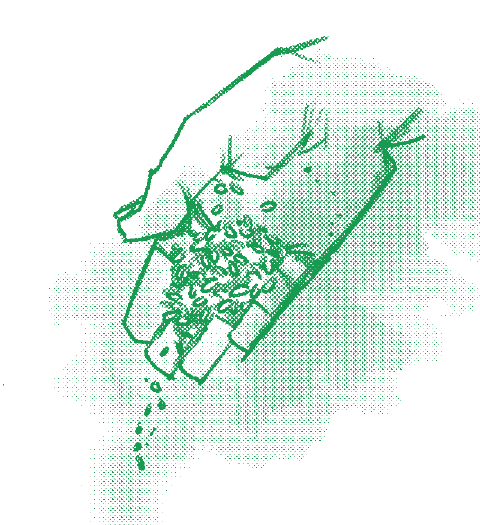
Seeds
International Intellectual Property laws facilitate the commodification of Nature, allowing corporations to own the genetic material of plants as private property, bidding to control the global seed supply. Further than this, such laws are being used to criminalize farmers for planting and sharing traditional seeds, forcing them to spend their few resources, raising their dependency on the corporate seeds and toxic fertilizers needed to farm them successfully.
At the same time, Southern and Eastern African countries have been pursuing the regional harmonization of their seed laws and regulations in favor of the private, transnational seed industry. Commercial seed production is expected to expand, providing farmers with the so called ‘improved’ access to new varieties and stimulating productivity growth through various national and regional interventions such as the Farm Input Subsidies Programmers (FISP). This is clearly a move
-
Seeds
towards commodification (and commoditization) of seeds and the capture of the whole agrarian sector in the region, which will greatly benefit the transnational corporate sector, and which already has a strong presence in these markets and are seeking new frontiers on the continent.
“The ability to share
the seeds with other farmers
and communities who want to
plant them, that is food
sovereignty.”Adam Mabunda
Mopani Farmer’s Association - South Africa
-
False Solutions to climate change
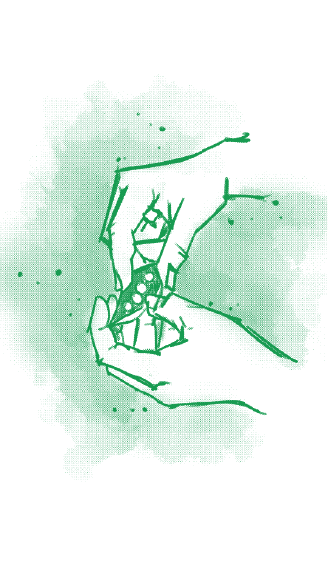
Current so-called solutions being promoted by corporate elites to address climate change are often themselves drivers of encroachment onto people’s rights. Their answers to the climate crisis still persist with a strong echo of the failures of the Green Revolutions. False Solutions such as Climate Smart Agriculture use phrases taken from Peasant Agroecology, but within a model of industrial agriculture. Nowhere in these proposals are the fundamental matters of right to local and nutritious food, dignified livelihoods, land and self-determination addressed.
Along the same lines, the Paris Agreement has endorsed several false solutions that preserve the market structure intact and produce a number of financial schemes and mechanisms (CDM and others). Net-zero is being used by transnational corporations and governments to hide their climate inaction, claiming that they just need to pay someone else to remove carbon, through carbon offsetting, rather than taking direct action on their own pollution.
-
False Solutions to climate change
- Climate Smart Agriculture (CSA)
- Clean Development Mechanisms (CDM)
- Reduction of Forest Degradation and
Destruction (REDD/REDD+) - Carbon Markets
- Net-zero strategies
- Green and Blue Economies
- Bioenergy Carbon Capture
and Storage (BECCS) - Geo-engineering
- Among others.
“When I was young in this
country there was a lot of honey.
Everywhere you could go,
you could find honey. But now
you can’t find honey. Why? Because
of the time when we began
to grow cotton and we were
using a lot of pesticides, all
the flies and all the bees died.”Boas Mawara Munyani
ZIMSOFF - Zimbabwe
-
PEASANT AE AND THE STRUGGLE AGAINST PATRIARCHY
The patriarchal capitalist system has been enforcing industrial agriculture, where women are the first victims of its oppression. Women suffer systemic and structural forms of violence (economical, employment, environmental, physical, sexual and psychological), which insist in keeping them invisible. Femicides also keep increasing, especially since the onset of the COVID-19 pandemic.
Despite the fact that women are the main contributors of labor and value-adding in food production and consumption, they are kept out of decision-making processes from public policy to households’ finances, and are mostly hardly affected by malnutrition.
“In this generation we live,
women must reclaim their value, and
people should recognize that value!
Everywhere, where you see a woman
devoted to work, please recognize her
work and respect her dignity.”Félicité Mbatu
COPALO (Member of COPACO-PRP) - Bukanga Londzo, RDC
-
PEASANT AE AND THE STRUGGLE AGAINST PATRIARCHY
Although Peasant Agroecology cannot defeat patriarchy in and of itself, it does address certain oppressive norms of patriarchy. It has the potential to change the lives of many women because the key role that they play is recognized and reflected in practice. Decision making is slowly being expanded to include women transversally in different movements and organizations, including in decisions made within organizational structures (such as LVC and member organizations).
“Agriculture is the
backbone of everything and
we need to embark on that.”David Omollo
Kenyan Peasants League - Kenya
-
PEASANT AE AND THE STRUGGLE AGAINST PATRIARCHY

Youth are also undermined by patriarchy. In Sub-Saharan Africa for example, youth suffer forced migrations due to war, climate change and oppressive economic and social conditions. Land grabbing by transnational capital for industrial investments, energy production, extractivism and “development” is commonplace. The labor of youth and migrants is undervalued and brutally exploited.
-
Why do we need climate justice
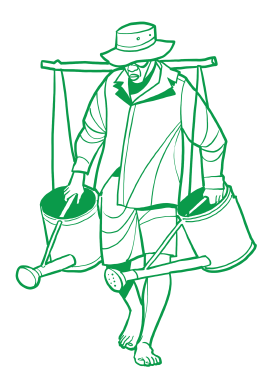
We are far from solving the climate crisis. The fundamental part of the problem has not been addressed: that it is our global socio-economic system that are causing climate change. The global socio-economic system is dominated by economic elites who, through a group of corporations seek to control land, seeds, and the entire food system. They make massive profits from the dispossession of peasants, and a model of agriculture that destroys forests and is highly energy intensive. They use their power to influence policies from national to global levels, including policies that supposedly address climate change, but are in fact false solutions that fail to address the root causes of Climate Change.
-
Why do we need climate justice
“To feed 9 billion people in 2050, we
urgently need to adopt the most efficient
farming techniques available,” says Olivier
De Schutter, the UN Special Rapporteur on
the right to food and author of the
report, entitled “Agro-ecology and the
right to food.” -
Climate justice will not be handed from above but must be taken from below
A big part of achieving Climate Justice is addressing the inequalities within the food system. Peasant Agroecology is built on solidarity with and among affected communities whose voices have been silenced in the fight against climate change by those in power, and with women, who are the ancestral custodians of Seed, and who do the work of feeding their communities, and tend to the new generation, while men often tend to pursue profitable enterprise. These peasant women and men are on the frontlines of the climate crisis, and they develop solutions for it every day.
-
Why peasant agroecology
It is by engaging in this way of life, and sharing knowledge and experience with other peasant farmers, that new knowledge for growing food in a changing climate is created. Food must be grown for people, not for profit. Peasants must farm for a healthy cycle of nutrients on their farms, not in a cycle of dependency.
“We get to eat more healthily. It’s not as
going somewhere to buy, which you don’t
know when it was cultivated. Here, we eat
while it is still fresh. And that is why we
are so courageous.”Joyce Hlungwane
Landless People Movement, Limpopo - South Africa
The only way for the food system to reduce emissions and to cope with current climate change is complete and total transformation. We must look to those that already live in harmony with Nature, to those who build life into their food system and communities, and have the knowledge to feed the world. The people demand it, and Peasant Agroecology and true Climate Justice give us the path to achieve it.
Peasant Agroecology:
- Feeds the people.
- Conserves biodiversity.
- Is based on science.
- Builds communities.
- Builds autonomy.
- Is resistance.
- Empowers youth.
-
Peasant ae achieves climate justice
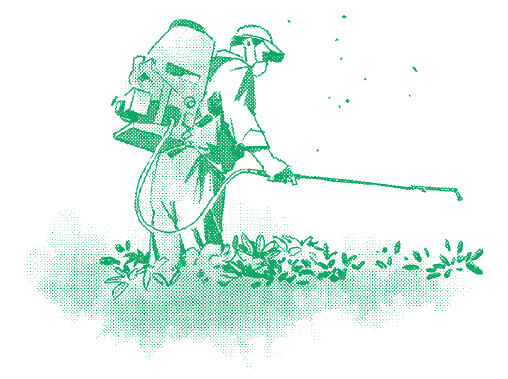
By taking control of their food system, peasants around the world are fighting climate change and the system that causes it. The movement for Peasant Agroecology and Food Sovereignty directly confronts the power that is built around corporate control over our common resources. People, not transnational corporations, should be at the center of the food system. They know the land, they innovate, and they share their knowledge with each other. Peasants can feed the world, and cool the planet.
Peasant Agroecology is a model of Life. It builds and strengthens the ecosystems that supply healthy food, capture carbon, and encourage biodiversity. It liberates those rural people that are forced to change their way of life and destroy their environment. In Peasant Agroecology the land is sacred. Peoples’ connection to the land is sacred. The seeds, the soil, the water, the air, are not resources to be sold for profit, but the sources of Life on Earth.
-
Peasant ae achieves climate justice
“I was born farming.
My father was a farmer.
Up to now,
I am still farming.
I am going to
die as a farmer.”Oliat Mavuramba
ZIMSOFF - Zimbabwe
-
Peasant ae achieves climate justice
We the peasants of La Via Campesina Southern and Eastern Africa Region and our allies express our solidarity with all struggles against false solutions to climate change and for climate justice across the globe. Standing in solidarity and hope with all the peoples of our region, we remain committed to the struggle for food sovereignty, agroecology, and rights to our territories, culture and identity as the basis for climate justice.
We feed the People,
and Build the Movement to
Change the World!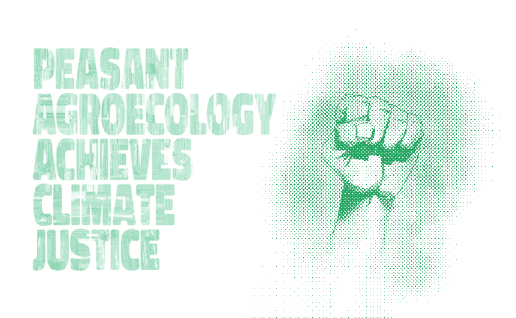
#It’sTimetoTransform #PeasantAEachievesCJ #LaViaCampesina
This web-doc is a digital popular education tool, part of the LVC SEAf Peasant Agroecology Achieves Climate Justice Initiative. Join the climate justice movement and experience this innovative approach, integrating digital technologies, African art and design, and peasant popular education. This tool is developed to be used by both individuals and organizations, of LVC SEAf and beyond, and is available here.




